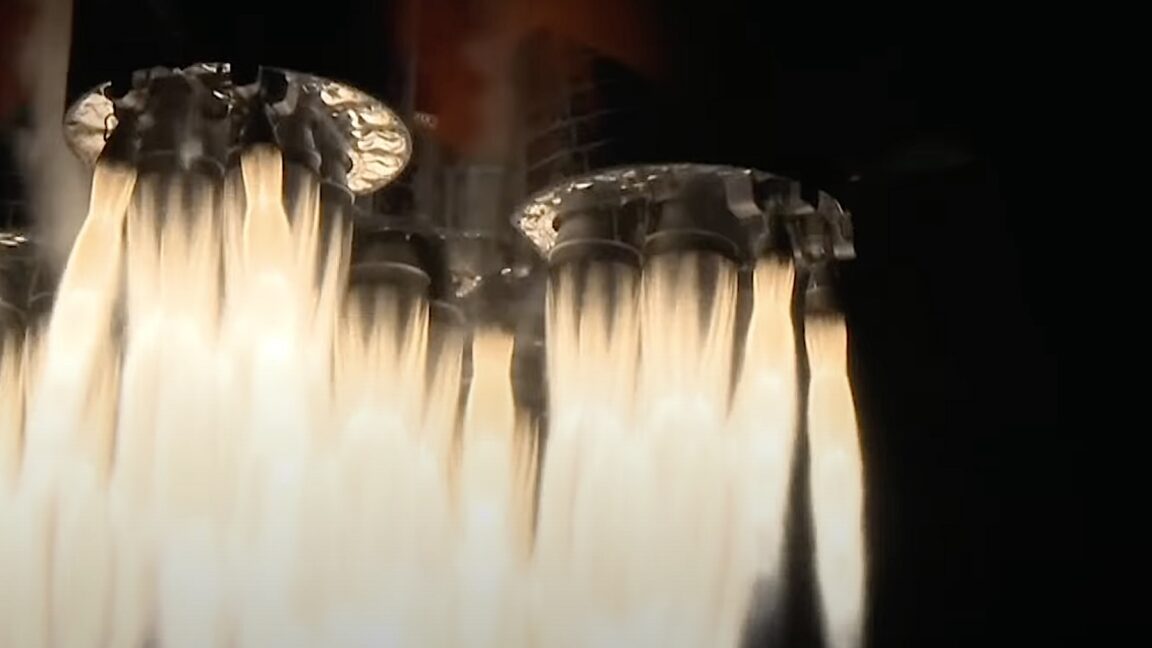Science
North Korea Tests Advanced Rocket Engine Amid Space Developments

The landscape of space exploration is witnessing significant developments, including North Korea’s recent advancements in rocket technology and NASA’s ongoing lunar missions. On Monday, North Korea conducted a successful ground test of a new solid-fuel rocket engine, marking a critical step in its missile capabilities, while NASA prepares for its Artemis lunar program, aiming to send astronauts beyond low-Earth orbit for the first time in over 53 years.
North Korea Advances Missile Technology
North Korea has reported that it successfully conducted the final ground test of a solid-fuel rocket engine capable of generating 1,971 kilonewtons (443,000 pounds) of thrust. This test was overseen by leader Kim Jong Un, making it the ninth test of this particular engine, according to the official Korean Central News Agency. Analysts note that this new technology enhances North Korea’s arsenal, potentially threatening the continental United States.
Solid-fueled intercontinental ballistic missiles (ICBMs) offer advantages over traditional liquid-fueled models, including easier storage and increased mobility. North Korean state media revealed that the new engine will be utilized in the upcoming Hwasong-20 missile. Industry experts anticipate that North Korea may conduct another ICBM test by the end of the year, coinciding with a major ruling party congress projected for early 2026.
Developments in Space Logistics and Exploration
In parallel to North Korea’s advancements, the U.S.-based lunar logistics company Astrobotic has signed a preliminary agreement with Norwegian spaceport operator Andøya Space. This agreement will facilitate the launch of Astrobotic’s Xodiac lander testbed from Andøya’s facilities. The Xodiac rocket, which can take off and land vertically, was initially developed by Masten Space Systems and acquired by Astrobotic in 2022.
Astrobotic CEO John Thornton noted that this partnership signifies a crucial step towards providing reliable and cost-effective testing capabilities for the European space market. The Xodiac rocket has already completed initial test flights in California, reaching altitudes of up to 500 meters (1,640 feet).
Ursa Major, another U.S. aerospace company, has announced the groundbreaking of a new facility in Weld County, Colorado, designed for testing large-scale solid rocket motors. This facility, expected to be operational by the fourth quarter of 2025, will support both current and future missile systems, including the Navy’s Standard Missile fleet. CEO Dan Jablonsky emphasized the company’s commitment to enhancing the American solid rocket motor industrial base.
SpaceX Launches Military Satellites
On the military front, SpaceX successfully launched the first batch of 21 satellites for a new military megaconstellation from Vandenberg Space Force Base in California. This launch is part of the Pentagon’s Golden Dome missile-defense system, with plans to deploy a total of 154 operational satellites for missile tracking and data relay over the next nine months. The Space Development Agency (SDA) has been working toward this milestone for six years, aiming to enhance beyond-line-of-sight targeting capabilities.
While SpaceX secured this successful launch, another scheduled launch faced multiple delays due to technical issues and weather conditions. The Falcon 9 rocket was eventually able to launch the Boeing-built Nusantara Lima communications satellite, marking just the fifth geosynchronous communications satellite launch on a commercial rocket this year.
Russia’s Space Industry Challenges
In Russia, President Vladimir Putin has called for the aerospace industry to ramp up the production of booster rocket engines. During a visit to the Kuznetsov design bureau in Samara, Putin emphasized the importance of renewing production capacities to meet both domestic and global demands. The plant produces engines for the Soyuz-2 rockets, crucial for launching military satellites and resupply missions to the International Space Station (ISS).
Despite these efforts, the future of Russia’s heavier-duty rocket engines remains uncertain, particularly following the cessation of RD-180 engine sales to the United States. This has raised concerns regarding the country’s ability to maintain its historic role in space technology.
International Collaborations and Achievements
Meanwhile, Astroscale, a Japanese satellite servicing company, has contracted India’s Polar Satellite Launch Vehicle (PSLV) to launch the ISSA-J1 satellite in 2027. This mission aims to inspect and image satellite debris in orbit, contributing to space debris mitigation efforts. Astroscale’s president, Eddie Kato, noted that the PSLV was chosen after evaluating over ten launch service providers, highlighting the specific orbital requirements of the mission.
The launch of the Progress MS-32 cargo spacecraft from the Baikonur Cosmodrome represents another significant milestone, being the 300th mission to the ISS since 1998. This cargo ship will deliver essential supplies, including food, water, and air, to support the crew aboard the station.
As the space industry continues to evolve, these developments underscore a dynamic interplay of national interests, technological advancements, and international collaboration in the quest for exploration and security in outer space.
-

 Science3 months ago
Science3 months agoToyoake City Proposes Daily Two-Hour Smartphone Use Limit
-

 Top Stories3 months ago
Top Stories3 months agoPedestrian Fatally Injured in Esquimalt Collision on August 14
-

 Health3 months ago
Health3 months agoB.C. Review Reveals Urgent Need for Rare-Disease Drug Reforms
-

 Technology3 months ago
Technology3 months agoDark Adventure Game “Bye Sweet Carole” Set for October Release
-

 World3 months ago
World3 months agoJimmy Lai’s Defense Challenges Charges Under National Security Law
-

 Lifestyle3 months ago
Lifestyle3 months agoVictoria’s Pop-Up Shop Shines Light on B.C.’s Wolf Cull
-

 Technology3 months ago
Technology3 months agoKonami Revives Iconic Metal Gear Solid Delta Ahead of Release
-

 Technology3 months ago
Technology3 months agoApple Expands Self-Service Repair Program to Canada
-

 Technology3 months ago
Technology3 months agoSnapmaker U1 Color 3D Printer Redefines Speed and Sustainability
-

 Technology3 months ago
Technology3 months agoAION Folding Knife: Redefining EDC Design with Premium Materials
-

 Business3 months ago
Business3 months agoGordon Murray Automotive Unveils S1 LM and Le Mans GTR at Monterey
-

 Technology3 months ago
Technology3 months agoSolve Today’s Wordle Challenge: Hints and Answer for August 19









